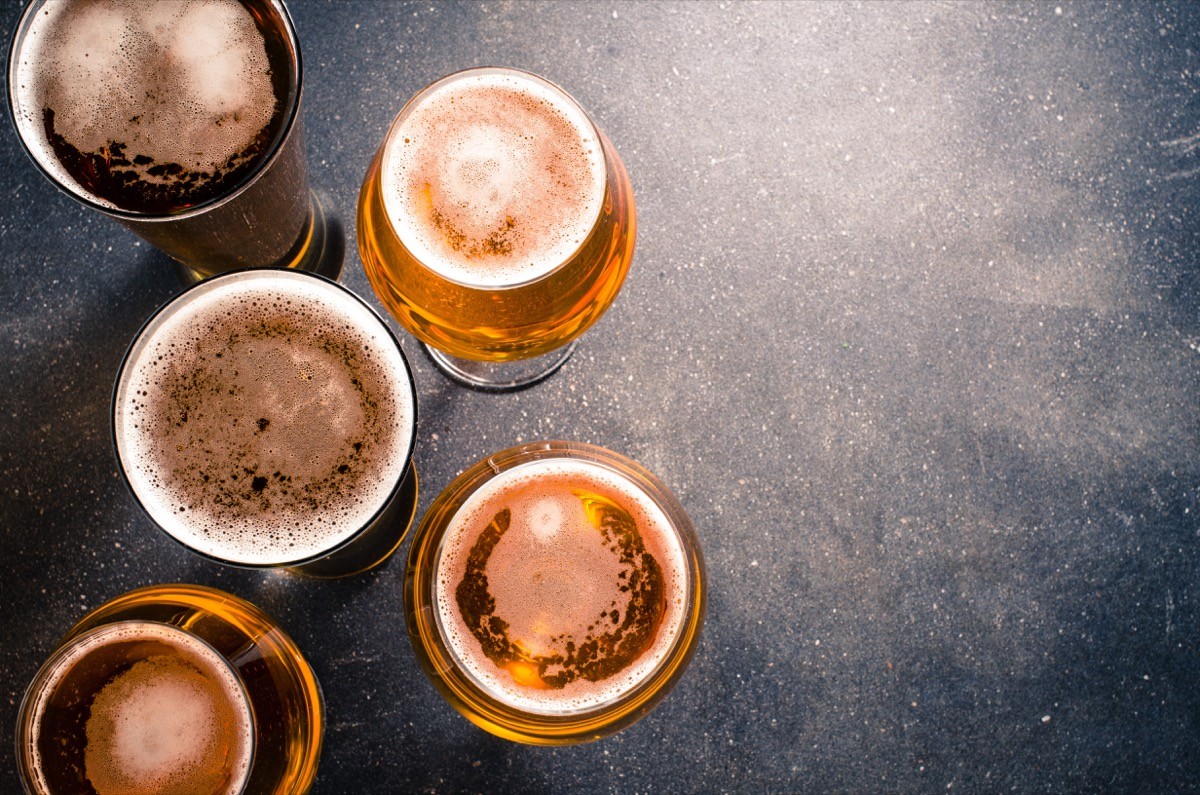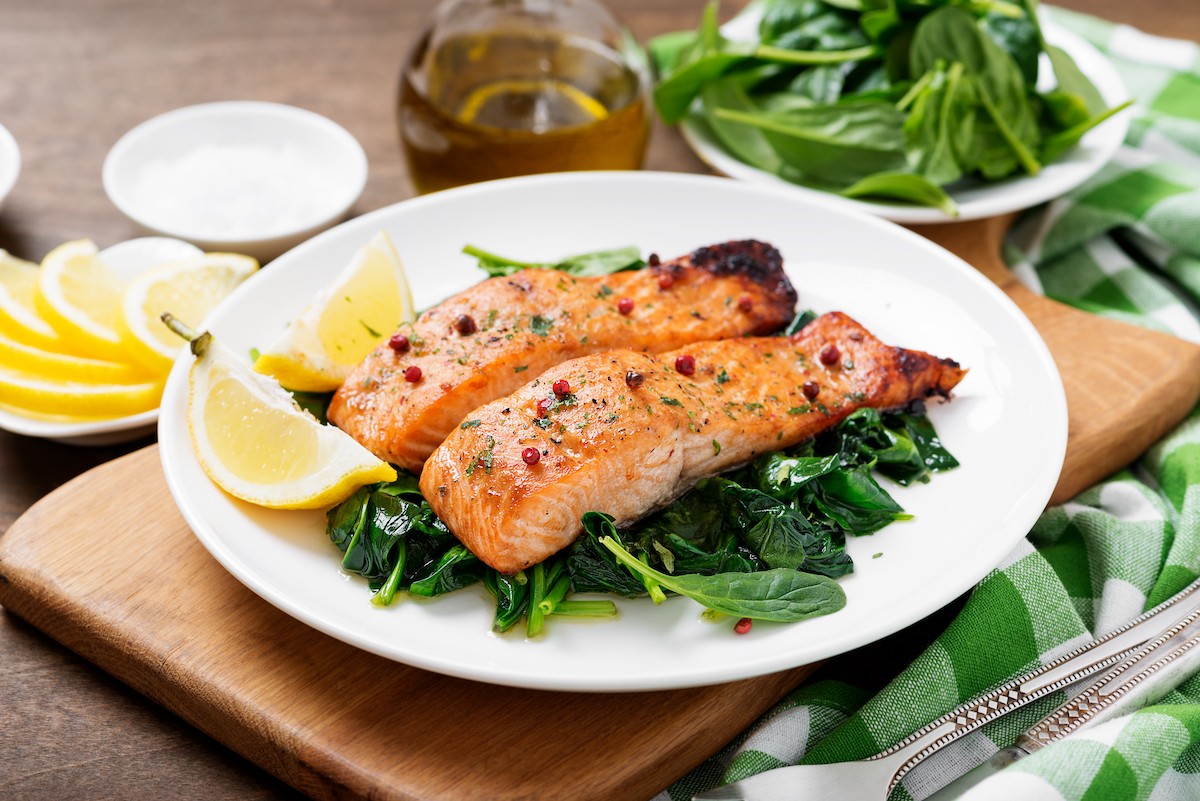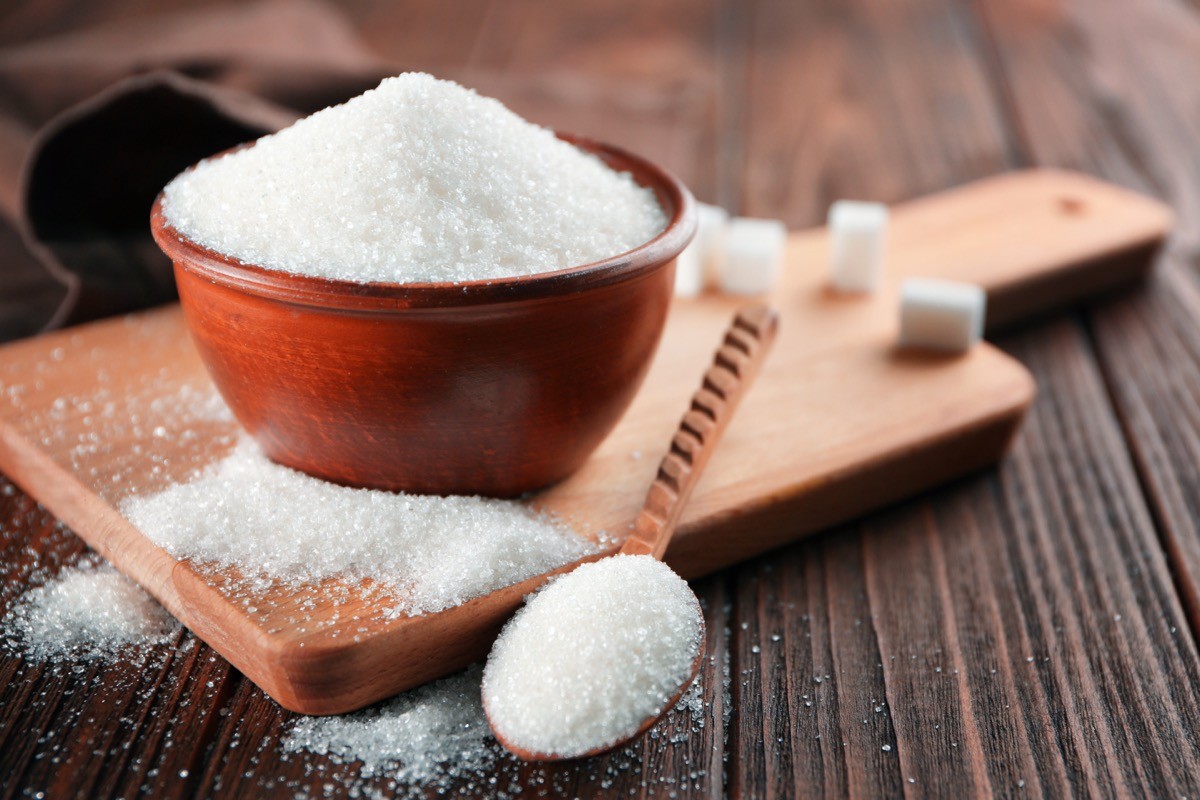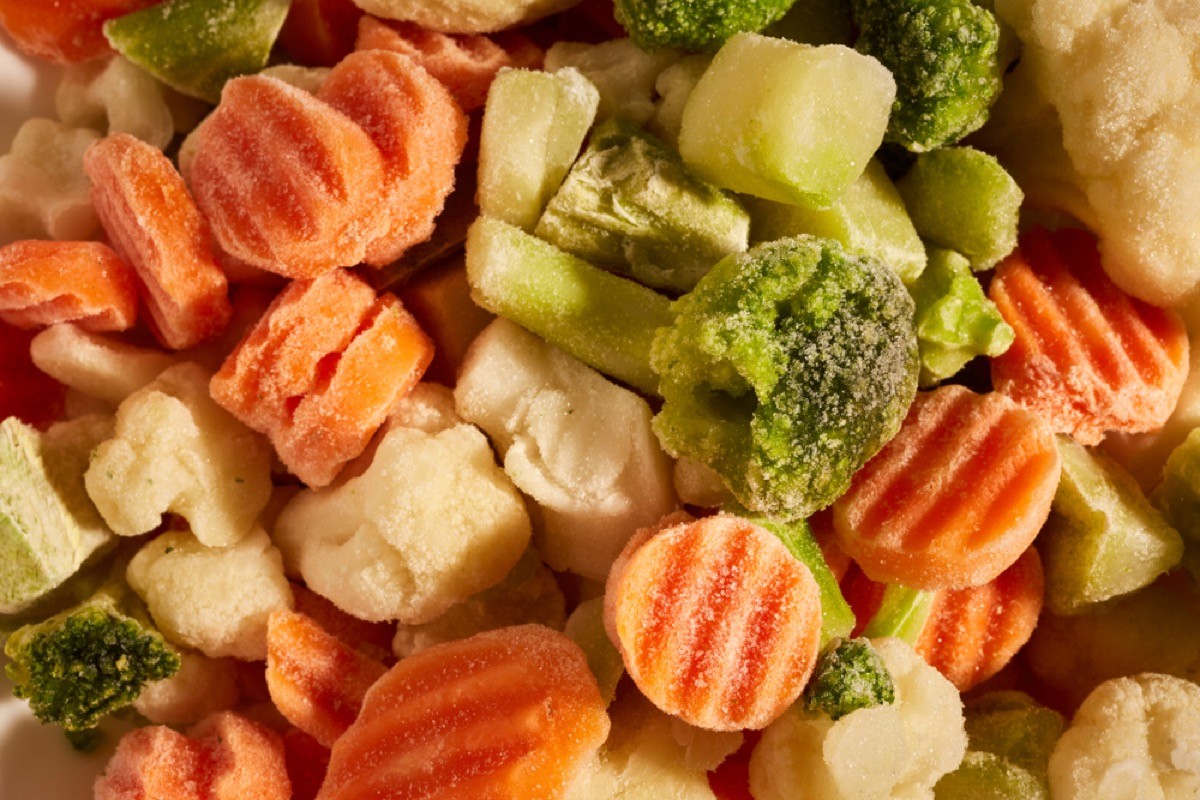7 Simple Changes That Will Instantly Improve Your Diet

What we eat affects our appearance, health, wellness, and happiness in a myriad of ways—this includes healthy aging, mental wellbeing, immune health, and so much more. “There is no one diet, no diet pill and no surgery that lets people eat whatever they want and still expect weight loss and improved health,” registered dietician Janelle Hodovic tells UnityPoint Health. “Maintaining a healthy diet and exercise program will be what is needed to achieve those goals. Use food for its purpose: nourishment.” If you’re feeling sluggish, low-energy, or just stuck in a rut with poor food choices, these 7 simple changes will immediately change your diet for the better. Get ready to feel amazing!
RELATED: Vegan Diet May Be Best for Weight Loss.
1
Drink More Water

Drinking water is the most simple and effective way to instantly improve your diet. “Water should almost always be your go-to beverage,” says UC Davis Health. “Choose it over sugary drinks like soda or juice, which can be high in simple sugars and calories. You have many drink choices out there. At the end of the day, water is the first-choice beverage for best hydration. Drinking the right amount of water for your personal health and activity level is important. Try healthy add-ins like fresh mint, sliced cucumber, or lemon wedges to add flavor and variety to your water.”
2
Eliminate Ultra-Processed Foods

Removing ultra-processed foods from your diet will do wonders for how you look and feel.”Health consequences of ultra-processed foods are dire,” preventive cardiologist Stephen Devries, MD, tells the AMA. “A large study conducted over 19 years showed a 31% higher mortality for the highest versus lowest consumers of ultra-processed foods,” Dr. Devries explained. “The concerns include recent documentation of an increased risk of type 2 diabetes, cardiovascular disease and dementia.”
3
Cut Down on Alcohol

Drinking too much alcohol affects every aspect of health. “Binge drinking puts you at risk of short- and long-term health problems,” says the CDC. “These problems include hangovers, injuries, overdoses, alcohol use disorder, heart and liver disease, and cancer.”
4
Eat More Oily Fish

Eating more oily, fatty fish like salmon, sardines, and mackerel will instantly change your diet for the better. “Fish is a good source of protein and, unlike fatty meat products, it’s not high in saturated fat,” says the American Heart Association. “Fatty fish is also a good source of omega-3 fatty acids, which are good for your heart. Regularly eating fish and seafood is consistently associated with a lower risk for cardiovascular disease.”
RELATED: 10 Healthiest Superfoods to Add to Your Diet.
5
Cut Down on Sugar

We’re not talking about the sugar naturally occurring in fruit, but more so added sugars in everyday foods. “Keeping tabs on how much sugar you’re consuming is an important part of a heart-healthy lifestyle, especially if you’ve been diagnosed with diabetes or prediabetes,” says the American Heart Association. “The empty calories from added sugars in desserts, sweetened beverages and candy can lead to weight gain and spikes in blood glucose levels.”
6
Stock Up On Frozen Produce

Are you stuck in a cycle of spending money on expensive produce and watching it inevitably wilt away in the fridge? Get frozen instead. “Fresh vegetables and fruits can look beautiful and taste delicious. But some of them seem to spoil the second you get them home. And your food budget can take a hit if you’re buying a lot of pricey, out-of-season produce,” says Banner Health. “Frozen or canned-in-water options can be just as good for you. And they have a long shelf life, so they might be better choices. Plus, frozen and canned fruits and vegetables are often less expensive than their fresh counterparts.”
7
Try Intermittent Fasting

Give your diet a boost by simply skipping a meal. By deliberately choosing to eat within a specific time frame (eating window), fasting can be a useful tool for weight loss and overall health. “The science behind intermittent fasting is based on altering the body’s metabolism,” says Harvard Health. “During a period without eating, insulin levels drop to the point that the body begins burning fat for fuel.”